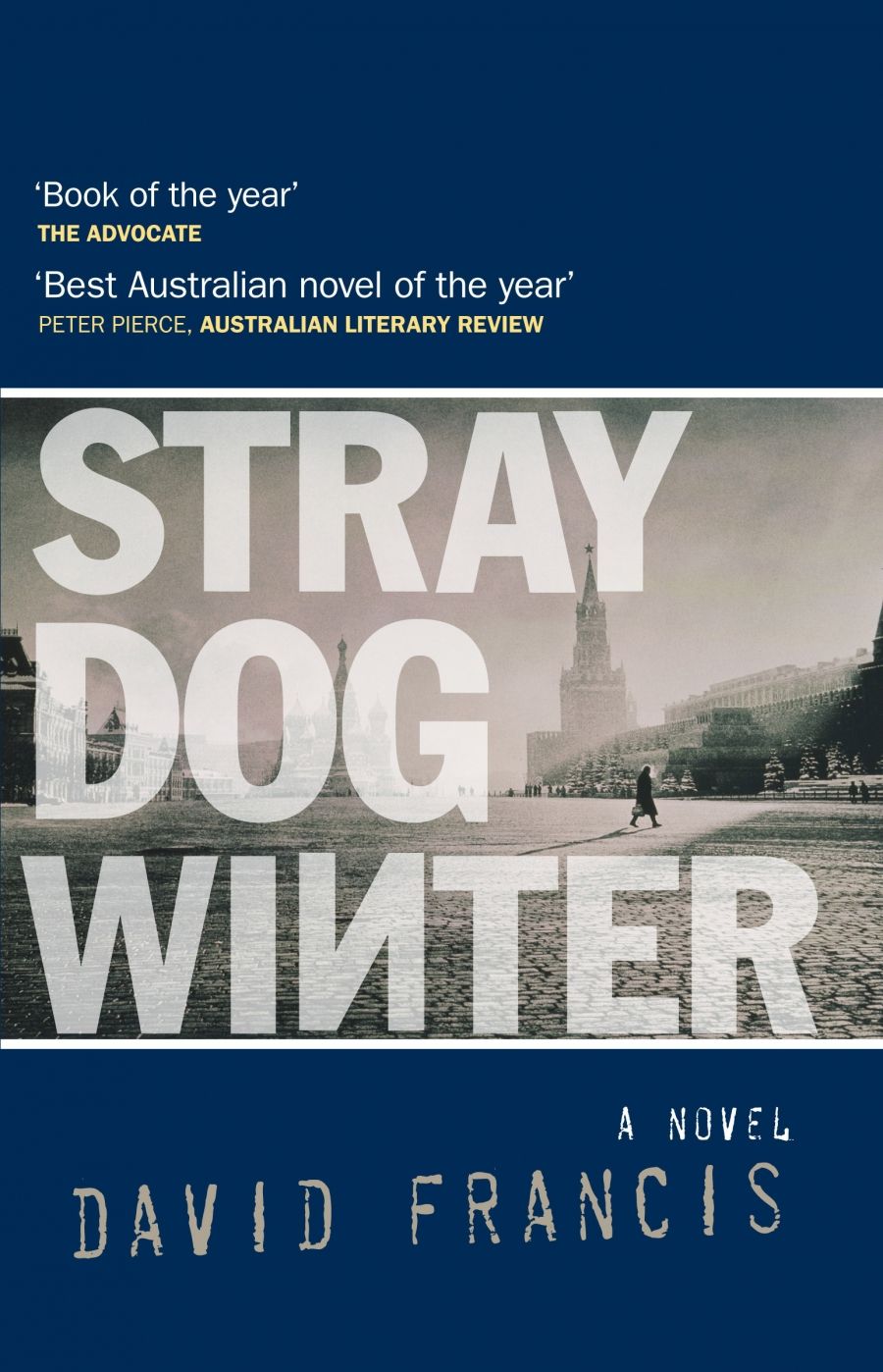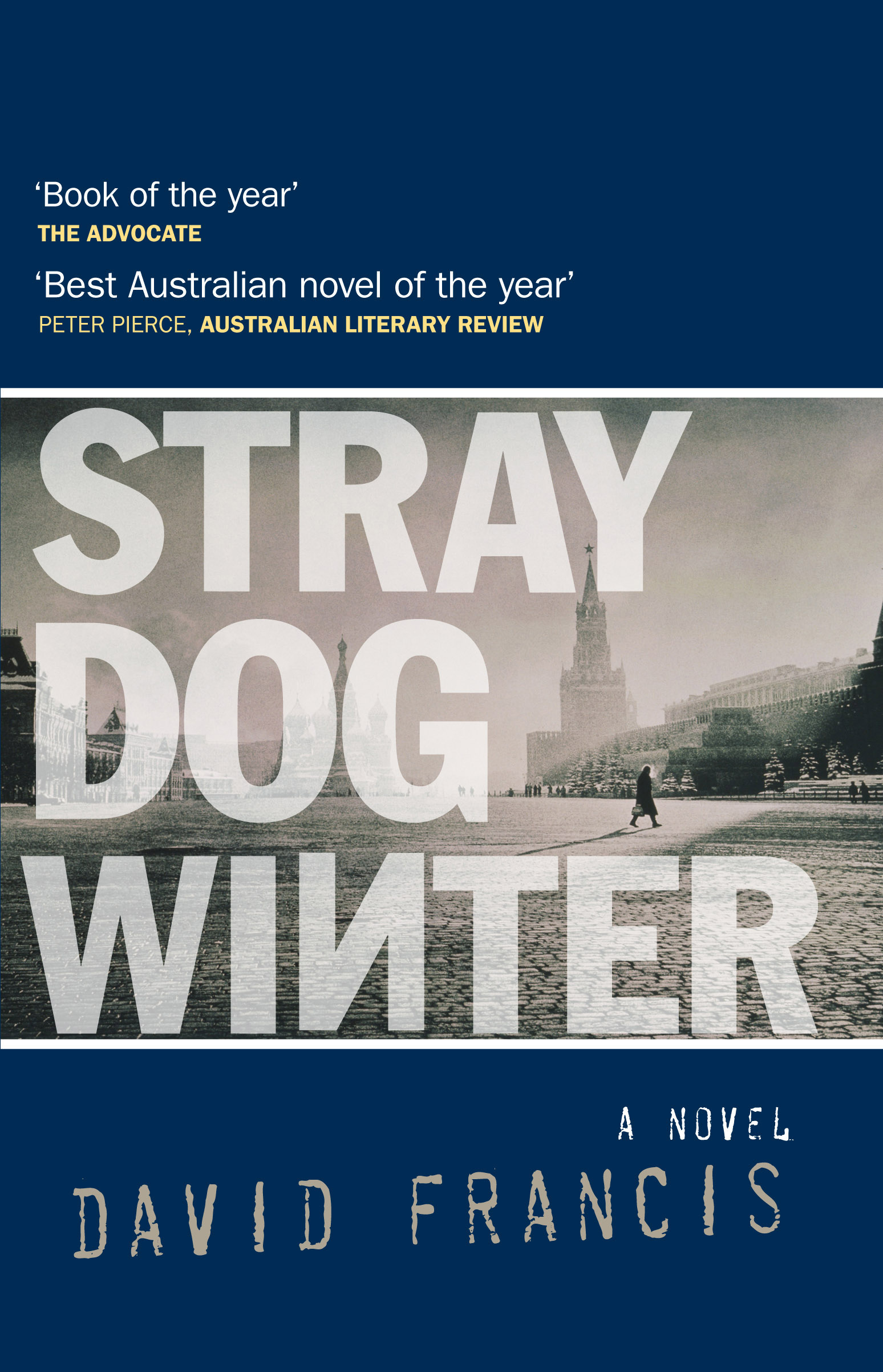
- Free Article: No
- Contents Category: Fiction
- Review Article: Yes
- Online Only: No
- Custom Highlight Text:
Glowing reviews of an author one is not familiar with can inspire scepticism, but in the case of David Francis these tributes are justified. Stray Dog Winter – an impressive political thriller – is set mostly in Moscow in 1984, with occasional flashbacks to Melbourne during the 1970s.
- Book 1 Title: Stray Dog Winter
- Book 1 Biblio: Allen & Unwin, $32.95 pb, 312 pp
- Book 1 Cover Small (400 x 600):

- Book 1 Cover (800 x 1200):

Our unworldly protagonist, Darcy Bright, travels to Moscow to visit his half-sister Fin, and is quickly drawn into a bewildering world of terrorism and espionage. Intriguingly, the fundamental plot elements are based on the author’s own life. Darcy is the stray dog of the novel’s title. References to his youthful promiscuity throw into relief his indiscretion with a soldier in Prague, which carries heavy consequences. Unknowingly, he becomes involved in a tense conflict between the KGB and a group of Armenian terrorists. His battle to regain control over his life becomes a rite of passage. Dogs subject to the whims of humans are a central motif. The atmosphere of latent violence is reinforced by the bitter and inhospitable Russian winter in which harsh reality is gradually revealed.
Aside from well-crafted suspense and a spectacular climax, this novel offers complex meditations on the love that dare not speak its name in Soviet Russia. Darcy is constantly faced with the prospect of becoming a despised ‘homosex’ prisoner in a Soviet gulag, subject to daily brutalisation. In an environment of strained relationships and distrust, his brief glimpses of genuine intimacy and fellow-feeling become beacons of hope. The prose is clipped, the dialogue often pregnant with tension. Occasionally, the present tense and stream-of-consciousness narrative restrict the world to Darcy’s immediate environment: history and world issues don’t concern him as he fights to return home. All this takes place in the fraught world of Soviet art, with the coda: ‘Only in a world without evil are the naïve devoid of guilt.’ This could well be a mantra for Australians in the world at large.


Comments powered by CComment